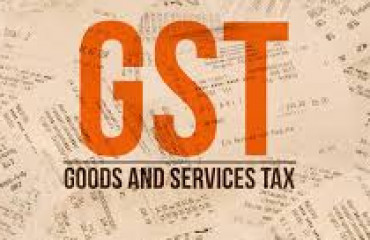
The minimum threshold of tax amount for launching prosecution under GST has been raised from ₹1 crore to ₹2 crore
The GST Council, chaired by Union Finance Minister Nirmala Sitharaman, will meet on 18 February. The 49th GST meeting is likely to take up a discussion on the taxation of 'pan masala' and 'gutka' firms. Besides, GST on online gaming, casinos, and horse racing may also come up for deliberations.
- The minimum threshold of tax amount for launching prosecution under GST has been raised from ₹1 crore to ₹2 crore
The GST Council, chaired by Union Finance Minister Nirmala Sitharaman, will meet on 18 February. The 49th GST meeting is likely to take up a discussion on the taxation of 'pan masala' and 'gutka' firms. Besides, GST on online gaming, casinos, and horse racing may also come up for deliberations.
The last GST Council meeting was held on 17 December 2022.
In that meeting, the Council clarified the definition of SUVs (sports utility vehicles). FMSitharaman said in the case of SUVs, the clarification that has been given is that the higher rate of compensation cess of 22% applies to a motor vehicle fulfilling all four conditions -- it is popularly known as an SUV; has engine capacity exceeding 1,500cc; length exceeding 4,000 mm; has a ground clearance of 170 mm and above.
The minister said the Council decided that if any other motor vehicle categories need to be added to the 22% cess, the panel of central and state tax officers (or the Fitment Committee) will look into it.
The Centre and states would attempt to widen the GST base at every level to increase the tax mop-up which is averaging about ₹1.4 lakh crore every month.
Currently, 1.40 crore taxpayers are registered under GST.
Revenue Secretary Sanjay Malhotra said the Council took a "path-breaking decision" with regard to decriminalising three types of GST offences -- obstruction or preventing any officer in the discharge of his duties; deliberate tampering of material evidence; and failure to supply information.
The minimum threshold of tax amount for launching prosecution under GST has been raised from ₹1 crore to ₹2 crore, except for the offence of issuance of invoices without the supply of goods or services or both.
Also, the compounding amount has been reduced to the range of 25 to 100%, from the present 50 to 150% of the tax amount.
The GST Council also decided to lower tax rates on husk of pulses to nil from 5%. Tax on ethyl alcohol supplied to refineries for blending with motor spirit (petrol) was reduced to 5%, from 18%.
These changes in GST rates were aimed at "facilitation of trade and measures for streamlining compliances in GST", as per an official statement.
The Council also clarified that Rab (a type of jaggery) and fryums manufactured using the process of extrusion attract 18% GST.
It also clarified that no claim bonus offered by the insurance companies is not a part of the taxable value for the levy of GST.
Also, incentives paid to banks by the Central Government under the scheme for the promotion of RuPay Debit Cards and low-value BHIM-UPI transactions are like subsidies and thus not taxable under the GST, the Council clarified.
In January, the GST Collection surged to 1,55,922 crore, the second-highest ever.
According to the finance ministry, the total revenue of the Centre and the states in January 2023 after a regular settlement is ₹67,470 crore for CGST and ₹69,354 crore for the SGST.
